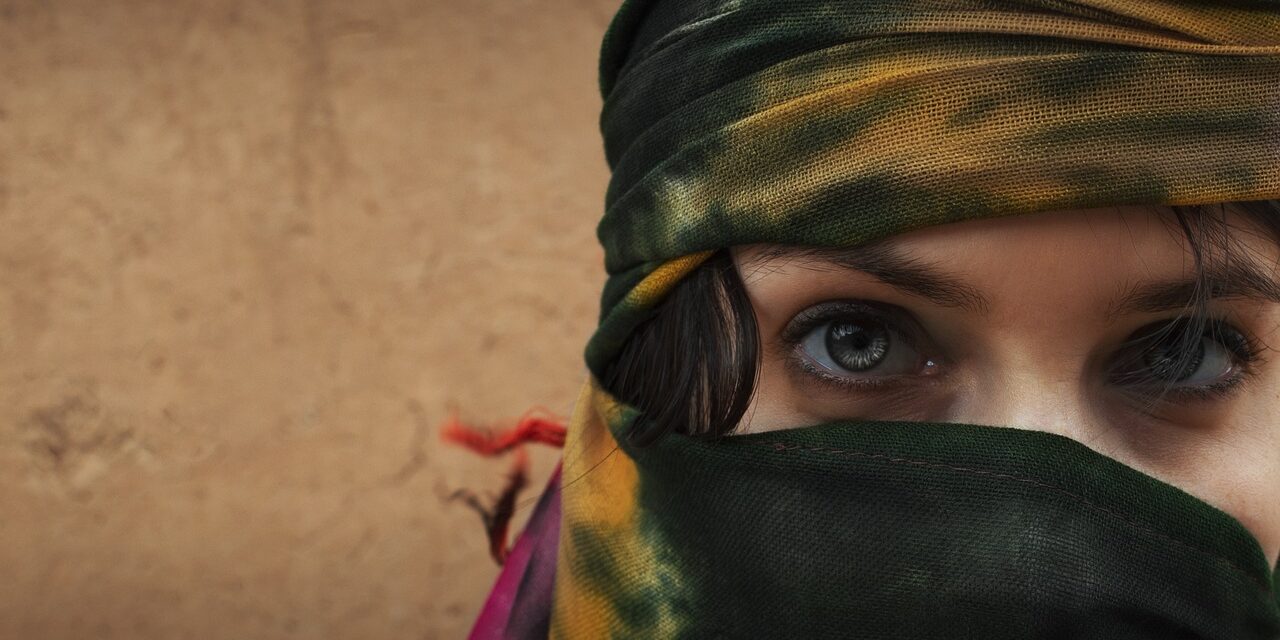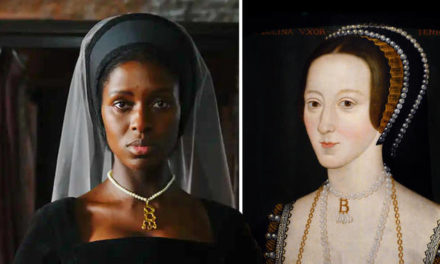A veiled face, male domination, speechlessness - these are the things that come to mind for many in Europe when they hear about women living in Saudi Arabia. If we are talking about Hungarians moving out, the picture is perhaps even grimmer. However, the reality is of course not (necessarily) so dark: there are many nice, modern women and men who can enjoy the changes living abroad - whether Arab or foreign, it doesn't matter. Gabi, who is in her forties and lives in Riyadh, told me about all this.
Middle Eastern memoirs are very popular in Hungary: horror stories about women, in which they mostly write about oppression, escape, and a new life in Europe. My problem with such stories is that they are often about the processing of trauma - like literature in general - but the reality of real life is much more complex than the templates presented in such volumes. In order to paint a truer picture, I visited some Hungarian women who live in Saudi Arabia. I asked them to tell me about their life there, to add nuance and color to the general picture of life in the Middle East. I talked to Gabi for the first time.
How about these novels? I asked the temperamental Hungarian woman in her mid-forties, who has been living abroad in the kingdom since 2015.
"They write about a lot of things that only happen in the higher social class, even though their lives are completely different from the average Saudi. The ones they write about are mostly perverted princes who have power and don't fear God... an ordinary person doesn't live like that"
he snaps at her immediately.
As we talk, I slowly learn: Gabi's first husband was Greek, her second Italian, with whom she lived for sixteen years in Northern Italy. She and her Saudi husband have been together for more than ten years. The marriage procedure took years, because
it is impossible for Saudi citizens to get permission from the state to marry a foreigner in 40 years without some bribe and acquaintance.
"The permit also included a paper for my husband, which described the dangers of marrying a foreigner. They even warned me at the last minute to be careful with me because a European woman will take the child and it will cost a lot of money. It was very funny," recalls Gabi.
The story of how she met her husband can also be surprising, at least from European eyes: they first talked on the Internet, and when things got serious, they met several times in person, but only in Europe, because Gabi, as a single woman, could not go to the kingdom at that time. In 2012, on a pilgrimage, she put on a niqab, i.e. a scarf that covers the face, and pretending to be her future sister-in-law, she traveled to the capital, Riyadh, to visit her future husband's family. Since then, the paperwork has been handled and she now lives abroad with her husband and his family.
The move and the new life also held surprises, especially in addition to the strictness of the rules and customary law outside.
"As a newlywed, I would have wanted to be with my husband. Once I sat next to her and next to my brother-in-law, but my mother-in-law came and transferred me to the "women's section" and then taught me that it is inappropriate for women to sit in the company of men when there are other female relatives in the apartment. They take this as an insult, you signal to them that their presence is not important. So we had dinner separately."
The family structure is fundamentally different, which, according to Gabi, is important for all European women who plan to marry a Saudi man to be aware of. "In Europe you and your husband form a family, here it is not like that. Here, everyone gets along well with their own family members, and they really only marry for sex and children.
My husband does not desire my physical closeness as much as a European man,
it is enough for him to know where I am and that everything is fine with me," he says.
The extended family is therefore extremely decisive, and it also influences how society, the narrower and wider environment relate to you. "Based on your family name, they immediately categorize you: they know where you are from, where you live, which tribe you belong to, whether your family is foreign or comes from a recently settled Asian or former African slave family. The latter are not even considered real Saudis, and are often treated as such. They e.g. the taxi drivers, who are not married to a "real Saudi" tribe. This is similar to what I experienced in Italy as an Eastern European: I was European in their eyes, but not a real European.”
So far, applicants have been granted citizenship under very bizarre conditions: they had to have 2 children, no more than a 5-year age difference between the spouses, a university degree, and the Saudi husband had to be a doctor or engineer; only his foreign wife could apply for citizenship. This system has since been relaxed, but the other citizenships would still have to be renounced, so Gabi rejected the idea of becoming a Saudi citizen.
Everyday "oddities"
In many ways, life is different from what we are used to in Europe, if not necessarily the way we think. For example, Gabi was at first surprised by the clothing habits and everyday topics of conversation. "The woman next door invited us to her house. As a European, I thought if we went next door, jeans and a nice blouse would be perfect. I was surprised to find that everyone was dressed up: mini skirts, make-up, evening dresses. The Saudis, as I've since learned, are very particular about appearances," he says.
Visits and acquaintances here and there, apart from her sister-in-law, Gabi doesn't really find a voice with the Saudi women in the area. Although he sees the locals as terribly nice and hospitable people, he mostly spends his time with foreign expats and other Hungarian girls. "The women here are like Italian women: they are always talking about clothes and cooking.
They don't engage in any deeper conversations, so they're usually boring to me.
On the contrary, I like that there are many expats here from all over the world, the environment is much more multicultural than, for example, Italy was. We mainly go to the mall with foreigners or visit each other at home. My husband and I have quite a few programs together, he is more of a stay-at-home type, but he doesn't mind that I go."
Gabi missed driving the most after moving. He was very frustrated that he could only go to the cafe, to Koran lessons by taxi or with the family's driver, or if a male family member drove him. A few years ago, the ban on women driving was lifted, and she jumped into the seat and worked as a taxi driver for months. He is currently a teaching assistant in a private school.
"I'm originally a pharmacist, but I wouldn't be paid more as a pharmacist than I am now in school. I prefer the company of children to adults, so I stayed here.
All the women in my husband's family work, and they talked me into looking for a job.
I really liked taxi driving, but unfortunately, since the "Saudization" only Saudis are employed as drivers. Now my working hours are from 10:30 to 3:30: the people here are very comfortable, they go to work late and come back early, and they do everything very slowly. Besides work, I have almost nothing to worry about, my husband takes care of the bills, I shop online, but if not, the men go to the market too."
Public mood in Saudi Arabia
According to Gabi, the Saudis really like the new prince for the changes, which is slowly creating a Dubai-like atmosphere in the country. The separation between men and women in public places is slowly being abolished and the rules regarding religion are beginning to recede into the background - as a Muslim, Gabi is especially less happy about this: you can no longer hear the recitation of the prayer from the mosque, and the shops are not closed during prayer time either.
However, there are still huge differences between local settlements and families. Coastal cities like Jeddah or Dammam are quite open, while the capital is inhabited by more conservative families. To this day, people operate in a tribal system:
normal is what the family accepts as normal.
This is why some women let their hair down on the street, while in other families women have to cover their faces. Gabi wore the scarf covering her face for a long time out of her own conviction, but she took it off some time ago.
Due to tribal customs, there is also a lot of cousin marriage, which can cause white spots (vitiligo disease) or psychiatric diseases. According to Gabi, there is someone in every family who is "not quite normal".
For him, peace, financial security and public safety are the three best things in his Saudi life, although he also likes young camel meat very much. At the same time, the heat of nearly 50 degrees for eight months, the lack of green surroundings, the dusty air, and the regularly occurring sandstorms take their toll. What he misses terribly is the chirping of birds.
“Saudi Arabia is like Mars. Barren and rocky. It rains about twice a year for a minute.”
And what could we learn from the people living here? According to Gabi, nurturing strong family ties and respecting the elderly. And the fact that we never leave a woman alone: there is no such thing as a woman getting divorced and having nowhere to go.
Featured image: Pixabay / Illustration












